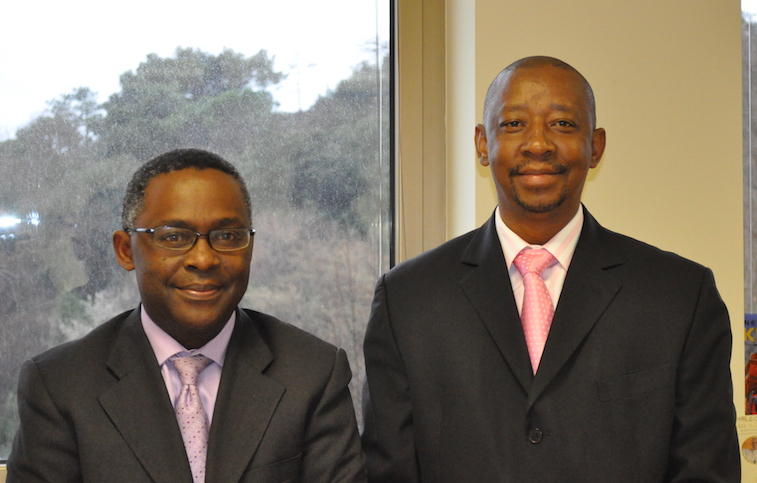 South Africa is refining its role as a continental leader for science development with an effort to create more African researchers and bring a stronger international profile to African science.
South Africa is refining its role as a continental leader for science development with an effort to create more African researchers and bring a stronger international profile to African science.
“Post-1994, we have done a lot for global science partnerships and collaborations,” said Cecil Masoka, director of multilateral cooperation for South Africa’s Department of Science and Technology. “By creating opportunities for scientists to study and go back to their home countries, everyone can grow together.”
Masoka, whose department operates under the guidance of Minister of Science and Technology Naledi Pandor, visited TWAS in Trieste, Italy, recently to help develop an upcoming joint fellowship programme between South Africa and the Academy. It's expected to provide 50 to 80 fellowships per year for the next five years, mostly to create African PhDs. This effort to develop a new generation of homegrown African scientists will be funded by South Africa, but its goal is to support scientists from throughout Africa and to advance science across the continent.
TWAS and South Africa have a long history of close collaboration, but they recently have taken steps to further strengthen ties. Another example is the transfer of the TWAS regional office for sub-Saharan Africa to the Academy of Science of South Africa (ASSAf), which is headquarted in Pretoria, South Africa.
Since 1994, when South Africa held its first general elections, the country has strived to reintegrate back into the global community and grow its scientific and technological capability. In the 21 years that followed, the country engaged with multinational institutions and gained a reputation as a credible, trustworthy science partner that can provide scientific expertise and financial support on the global scene. The country is engaged internationally in fields ranging from Earth observation to material sciences and life sciences. It also puts a large share of its research financing into infectious disease research.
“We think these are important for the African continent to address,” Masoka added, “to do a lot of research on, to understand, and also to be able to come up with productive services, vaccines, that will assist us in addressing these scourges.”
South Africa’s reputation as an international collaborator has greatly benefited the country. Their participation in the European-South African Science and Technology Advancement Programme, starting in 2005, brought 10 million euros per year into their science system, dedicated to boosting the country’s development with technology. South Africa also collaborates with France to host the French South African Institute of Technology (F’SATI), providing tele-electronics and engineering training to black South Africans, with a strong focus on women. Another programme is the Cape Town-based African Institute for Mathematical Sciences (AIMS), providing workshops and seminars to promising African maths students. The Abdus Salam International Centre for Theoretical Physics (ICTP), which hosts TWAS in Trieste, Italy, participates in AIMS.
South Africa believes it can help expose African researchers to top-notch science while mitigating the continent’s loss of talent to developed countries, said Masoka. “It’s very important that the fellowships we’re providing will be able to achieve that. We would like to see the top African scientists doing research – doing international, high-standard science – in Africa.”
The stabilization of South Africa has made these international collaborations and the nation’s position as a science hub possible. The country now attracts top researchers from throughout the African continent, putting South Africa at what he called "the axis of benefiting and also contributing to the global science community."
“As a relatively developed country in the continent, it’s not a question of obligation, but more a question of developing with other people,” Masoka added. "We think it’s very important that other countries develop jointly with us.”

